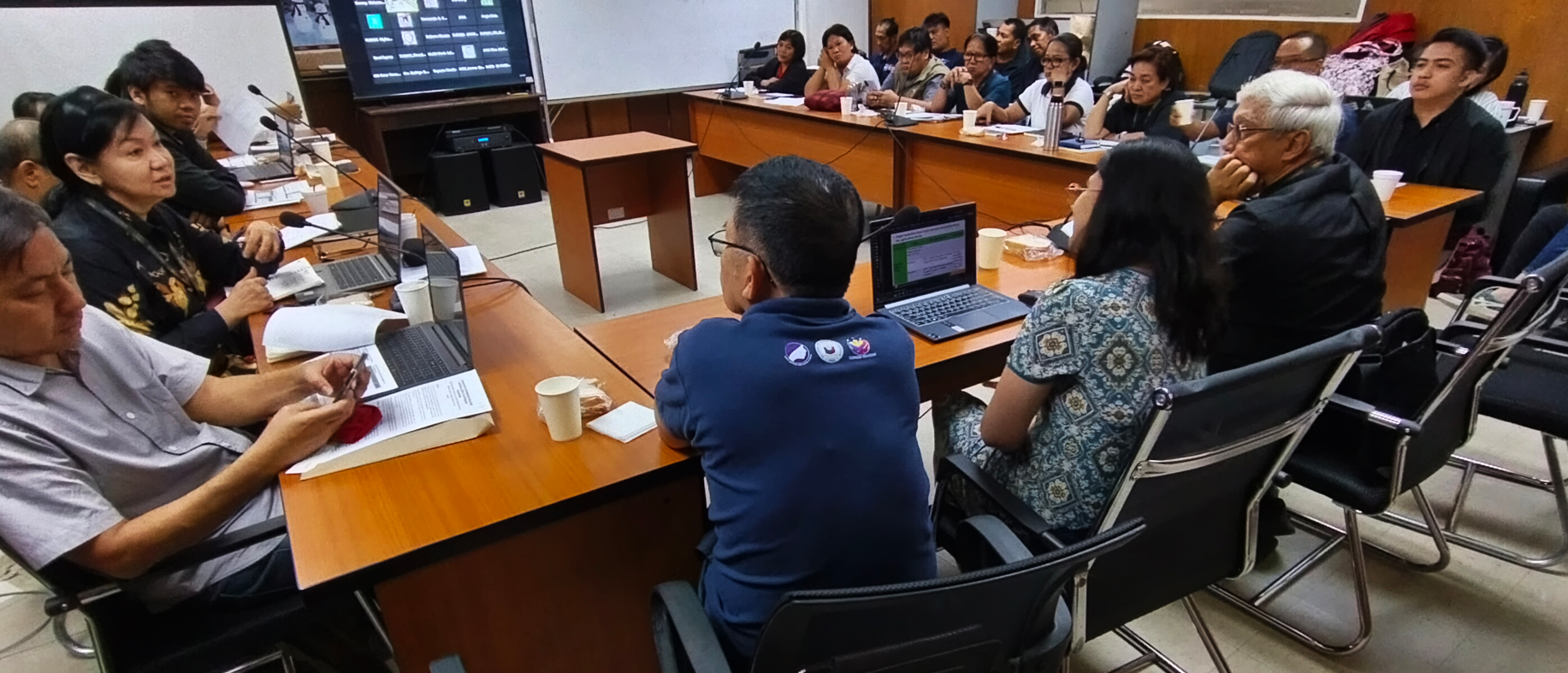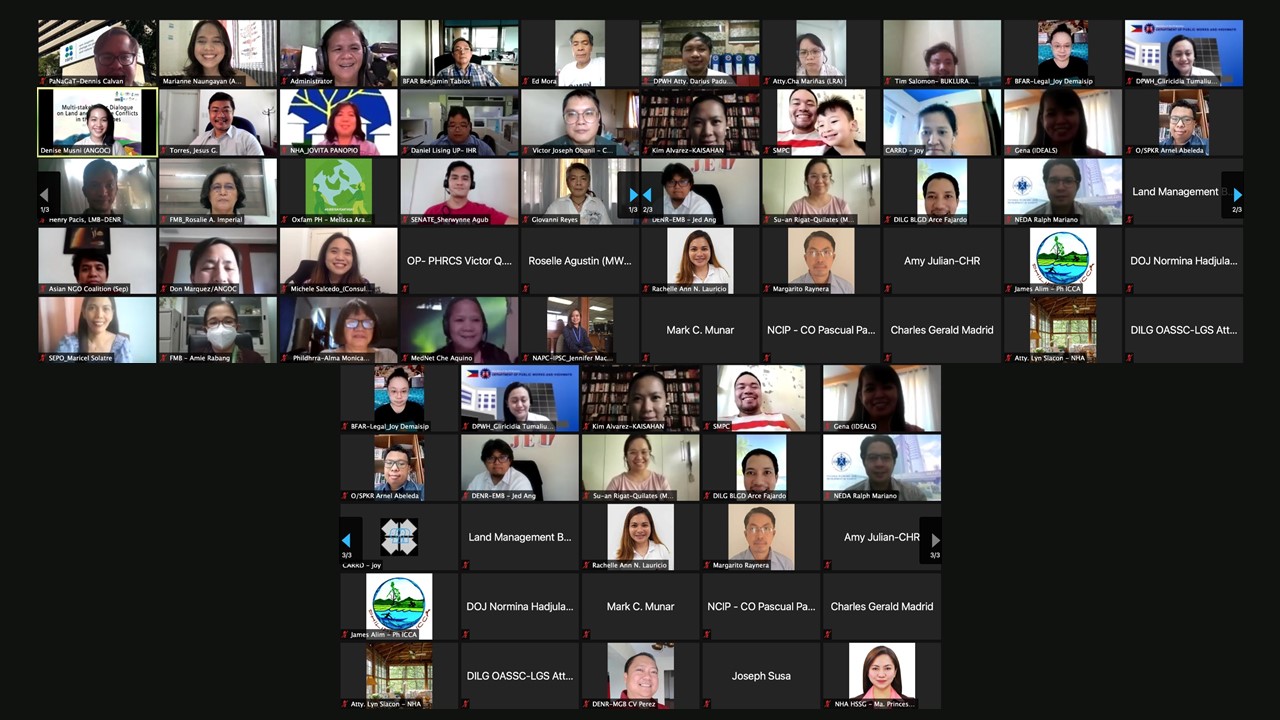


QUEZON CITY, Philippines – ANGOC and the Commission on Human Rights jointly organized an online Multistakeholder Dialogue on Land and Resource Conflicts in the Philippines last 22 April 2021 to (a) present and discuss the findings and recommendations of the draft 2020 Philippine Land and Resource Conflict Monitoring Report; and (b) identify immediate course of joint actions to address the proposed recommendations.
A total of 67 participants (34 males, 33 females) from government line agencies, executive branch offices, legislative branch offices, human rights offices, civil society and faith-based organizations, international and intergovernmental organizations, and basic sector representatives attended the dialogue.
The 2020 Philippine Land and Resource Conflict Monitoring Report is part of a broader initiative on Defending Land Rights and Human Rights Defenders involving six countries in Asia (Bangladesh, Cambodia, India, Indonesia, Nepal, Philippines). It is the second of its kind in the Philippines, following the 2018 land conflict studies that were also conducted in the six countries.

Supported by the International Land Coalition (ILC), United Nations Development Programme-Business and Human Rights (UNDP-BHR) in Asia and the Deutsche Gesellschaft für Internationale Zusammenarbeit (GIZ), the monitoring report describes the prevalence and types of land and natural resource conflicts; examines their causes, impacts, and outcomes on communities and individuals; and draws up recommendations based on the study’s findings and conclusions. Through secondary data-gathering, the monitoring was able to uncover 223 cases of land and resource conflicts that were ongoing as of 2020, covering over 1.6 million hectares (5.6% of the total territory of the country), affecting over 507 thousand households and 68 thousand individuals.
The monitoring effort also uncovered the following:

Discussions ensued after the presentation. These discussions were initiated by representatives from line agencies, civil society, private sector, faith-based organization, and the basic sectors who provided their reflections on the presentation, shared their methods for preventing or addressing land conflicts, and recommendations to jointly address land and resource conflicts in the country.
At the heart of the matter is the need to equitably distribute and manage resources. Hence, there was a resounding call to continue to carry out and commit to the completion of land and resource reforms in particular the Comprehensive Agrarian Reform Program Extension with Reforms (CARPER), Indigenous Peoples’ Rights Act (IPRA), Fisheries Code, and Urban Development Housing Act (UDHA).

Given the overlapping jurisdictions of agencies and conflicting laws, it was also raised that there be better coordination among land agencies in resolving conflicts, especially since many conflict management and resolution mechanisms are mostly confined within the same sector.
There is also an observed need to enact pending bills deemed integral to preventing and addressing conflicts:

In relation to moving forward, government agencies and CSOs alike must share information and coordinate more of initiatives to manage and resolve conflicts, as well as to enhance capacities by sharing tools and approaches on alternative dispute resolutions and conflict sensitivity. Localized dialogues and consultation are highly encouraged to come up with solutions given the contextual and cultural nature of conflicts. Finally, it was noted that multi-stakeholder dialogue processes must be sustained not only to identify together the challenges in relation to land rights, but more importantly, to urgently act jointly to serve justice and prevent violence. ☐
